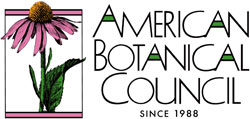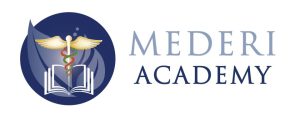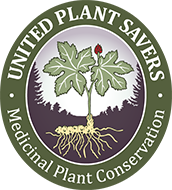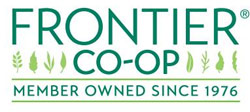Welcome to the Medicines from the Earth Herb Symposium — June 2-4, 2023 in Asheville, NC
Attendee Page Directory
- Streaming videos (available until 1/6/24)
- Digital Book and Lecture Notes
- Continuing Education Information
- Symposium Schedule
- Meals and Lodging
- Intensives (requires pre-registration)
- Speakers and Topics
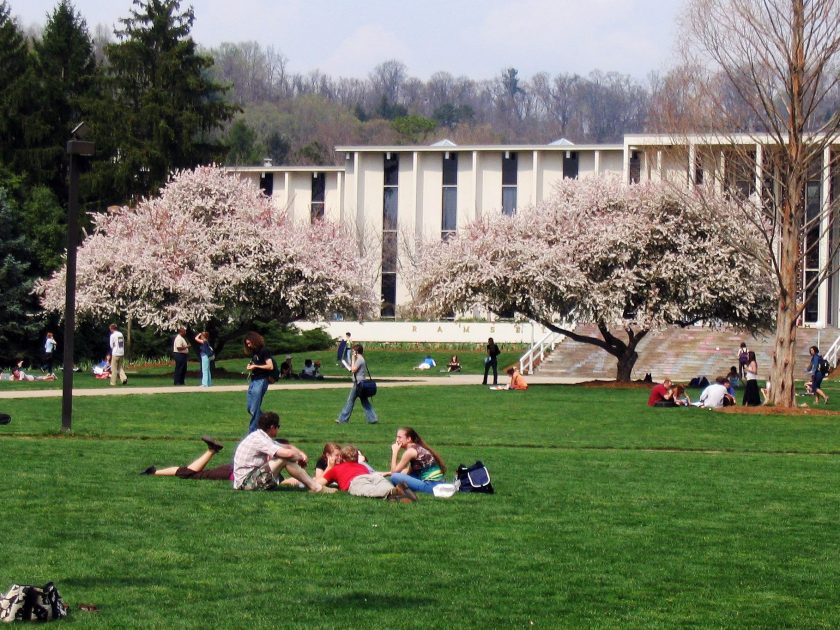
Your in-person attendance includes:
- Live lectures June 2 – 4 (Friday intensives, meals/lodging and CE fee are extra fee)
- Streaming of all videos made at the symposium for 6 months (except outdoor workshops, which won’t be recorded)
- Full set of audio recordings to own
- Digital lecture notes to own
- Continuing education – $29 fee
We’re excited to share the beautiful UNC Asheville area with you at this year’s Symposium. Tucked away in a beautiful location with on-site lodging next to the local botanical garden, attendees have the option of spending quiet time in nature or exploring downtown Asheville just minutes away.
Meals and Lodging
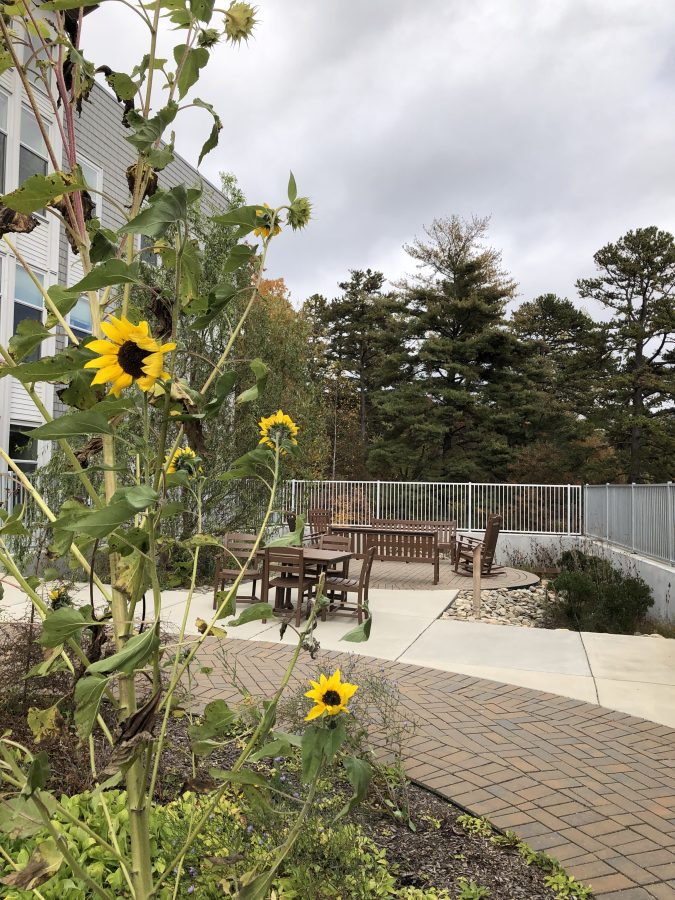 UNC Asheville, 1 University Heights, Asheville, North Carolina
UNC Asheville, 1 University Heights, Asheville, North Carolina
Registration for lodging and meals is now closed.
All-inclusive lodging and meal packages start at $343 total for two nights’ lodging and six meals. Commuter meals are also available for $109 for the weekend.
Student Apartment Lodging at UNCA is now fully booked. Email us if you would like to be on a waiting list for a room in an apartment (private single bedrooms with a shared bath and a common kitchen and living room area).
NEW! Overflow lodging available in a dormitory setting in nearby Founders Hall. Each dormitory space is two single-occupancy rooms (same gender in each room) connected by a shared bathroom. Linens are provided.
All lodging is conveniently situated between Highsmith Union where lectures take place and the firepit where we’ll share stories and music Saturday evening.
Cancellation with full refund possible by May 22. No refunds for lodging possible after that.
View alternative lodging in Asheville
Pre-Symposium Events on Friday, June 2
Sign up in advance for these to ensure your place
If you haven’t already, please sign up in advance for intensives, the field study and/or Mountain Garden tour. Add it to your registration here. You will need your registration number from your original receipt.
Morning Pre-Symposium Intensive with Jason Miller, DACM, LAc
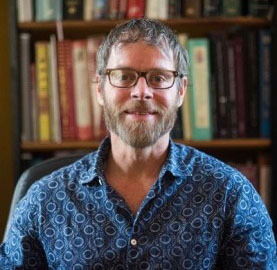
Title: Management of Complex Chronic Disease: Combining TCM (Traditional Chinese Medicine) Concepts with Modern Biomedical Analysis
Date: Friday, June 2, 2023
Time: 9:00 AM – 12:00 PM
Place: UNC Asheville
Cost: $89
Open only to registered conference participants.
Continuing Education: Approved for 1.5 general hours + 1.5 pharmacy for naturopathic physicians (OBNM); 3 PDA for acupuncturists (NCCAOM); approved for 3 nursing contact hours (AHNA)
Description:
As a Doctor of Acupuncture and Chinese Medicine and an advanced practitioner of botanical medicine based on biomedical testing and research, Jason Miller is uniquely qualified to bridge the gap between TCM and modern herbal therapies. In each section he presents botanical therapies along with time-tested TCM diagnosis and treatment:
• Spleen qi deficiency – The digestive system and the microbiome
• Phlegm-dampness – Metabolic syndrome, cell membranes and fatty acid metabolism
• Blood stagnation – Coagulation and thrombosis
Add it to your registration here.
In-Person Friday Field Study with David Winston, RH (AHG)
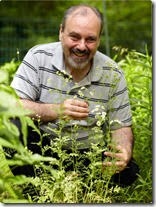
Title: Ethnobotanical and Native Plant Field Study
Date: Friday, June 2, 2023
Time: 10 AM – 3 PM
Cost: $79
Location: Botanical Gardens at Asheville
Open only to registered symposium participants (35 person limit)
Continuing Education: 5 hours credit for acupuncturists and nursing professionals. Sorry, OBNM does not provide credit for naturopathic physicians for herb walks.
Description: Join this perennial outdoor favorite for a day with herbalist David Winston. It’s just a short walk from the UNC conference center to the Asheville Botanical Garden, home of over 200 species of native plants. Examine the unique flora of the southeastern mountains and hear stories of creation and the origin of medicine. Discover how the medicine, food and useful materials provided by the plants have nurtured the Native peoples and Appalachian settlers for millennia. Explore the healing power of the herbs, the water, the earth, the trees, and how you can make them a part of your life. This event fills every year so please register early!
Note: Botanical Gardens of Asheville is a botanical sanctuary and harvesting of any plant or plant parts is not allowed.
Add it to your registration here.
Friday Garden Tour with Joe Hollis
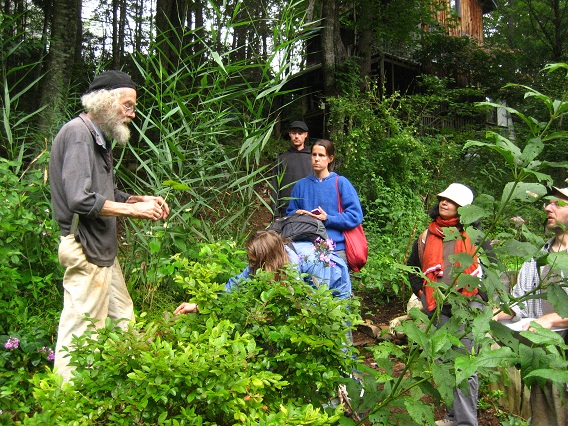
Title: Ecology, Propagation, and Cultivation of Native and Oriental Medicinal Herbs
Date: Friday, June 2, 2023
Time: 1 PM – 5 PM
Cost: $69
Location: Mountain Gardens in Burnsville, NC (about 45 minutes from UNC Asheville)
Open only to registered symposium participants. 20 person limit
Continuing Education: 4 hours credit for acupuncturists and nursing professionals. Sorry, OBNM does not provide credit for naturopathic physicians for plant walks.
Description: Mountain Gardens is a forty-year-old botanical garden of useful plants incorporating the largest collection of medicinal herbs in the eastern US. Joe teaches the techniques of cultivation and propagation he has been honing for over 40 years. More on Mountain Gardens here.
Add it to your registration here.
Afternoon Pre-Symposium Intensive with Jillian Stansbury, ND
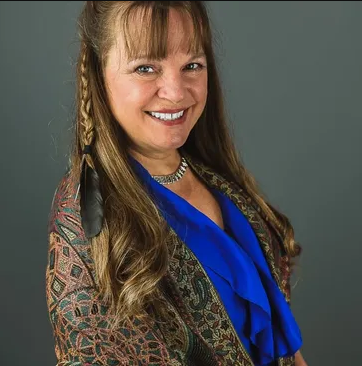
Title: Botanical Influences on Cell Membranes
Date: Friday, June 2, 2023
Time: 1 PM – 5:15 PM
Cost: $89
Location: UNC Asheville
Open only to registered symposium participants.
Continuing Education: Approved for 4 pharm hours for naturopathic physicians (pending approval OBNM); 4 PDA for acupuncturists (NCCAOM); approved for 4 nursing contact hours (AHNA)
Description: By understanding basic interactions on the level of the cell membranes, which are the mediators of all activity within the cell, we can become better at managing a host of conditions we see regularly as practitioners. This intensive investigates four of these interactions and the botanicals and pharmaceuticals acting on them: lipids/eicosanoids; glycoproteins/antivirals; ion channels/muscle relaxation and signal transduction/second messengers. Taken together, the parts of this intensive show us how using botanical medicine to affect cell membranes can improve the overall health of our patients. Full summary.
Add it to your registration here.
Streaming Videos
Lise Alschuler, ND
- Clinical Applications of Medicinal Mushrooms with Synergistic Botanicals
- Distress, Anxiety and Depression: A Botanically-Based Approach
- Panel: Mild Cognitive Impairment: Can it be Halted or Reversed?
Mark Blumenthal
Teresa Boardwine, RH (AHG)
- Bitters as Therapeutic Tonics (Demonstration)
- Creating an Herbal Day Spa at Home
Mary Bove, ND
- Senescence, Senolytics, and Aging
- Simplicity of Simples in Botanical Medicine
- Panel: Self Care: One of the Most Challenging and Rewarding Aspects of Patient (and our own) Health
Chris Kilham, Medicine Hunter
- Keynote Address: Plants, People and Places, A Web of Life
- Peru’s Sacred Plant Boom and Sustainability
Kat Maier, RH (AHG)
- We Are Stardust: Trace Elements as Foundational Building Blocks of Health
- Panel: Self Care: One of the Most Challenging and Rewarding Aspects of Patient (and our own) Health
Jason Miller, DACM, LAc
- Intensive: Management of Complex Chronic Disease: Combining TCM Concepts with Modern Biomedical Analysis (password to this video was emailed to intensive registrants on 7/6)
- The TCM Essence / Modern Genetics Parallel: From Congenital to Post-Congenital / From Digital to Analog
Kenneth Proefrock, NMD
- Tropane Alkaloids: From the History of Pharmacy to the Modern Practice of Botanical Medicine
- Case Studies in the Naturopathic Treatment of Neurodegenerative Conditions
- Panel: Mild Cognitive Impairment: Can it be Halted or Reversed?
Katie Stage, ND, RH (AHG), FABNG
- How to Put the Brakes on the Runs: Approaches to Finding the Root Cause and Treatment of Persistent Diarrhea
- Panel: Mild Cognitive Impairment: Can it be Halted or Reversed?
Jillian Stansbury, ND
- Intensive: Botanical Influences on Cell Membranes (password to this video was emailed to intensive registrants on 7/6)
- Mast Cells – Their Role in Health and Disease and Botanical Affectors
- Thought Disorders – A Survey of the Safety of Botanical Medicines in Schizophrenia
Donald Yance, CN, RH (AHG)
- Medicinal Mushrooms in Oncology: Everything You Need to Know About Mushrooms and Cancer
- Aging and the Immune System: Using Botanical and Dietary Compounds for Immune Enhancement and Clearance of Senescent Cells to Combat Aging, Infection, and Chronic Disease
- Panel: Self Care: One of the Most Challenging and Rewarding Aspects of Patient (and our own) Health
Lise Alschuler, ND
A naturopathic doctor with board certification in naturopathic oncology, Lise Alschuler has been practicing since 1994. She graduated from Brown University with an undergraduate degree in Medical Anthropology and received a doctoral degree in naturopathic medicine from Bastyr University. Dr. Alschuler is past-President of the American Association of Naturopathic Physicians and a founding board member and current President of the Oncology Association of Naturopathic Physicians. She is currently an independent consultant in the area of practitioner and consumer health education. More about Lise Alschuler.
- Clinical Applications of Medicinal Mushrooms with Synergistic Botanicals
- Distress, Anxiety and Depression: A Botanically-Based Approach
- Saturday Panel: Mild Cognitive Impairment: Can it be Halted or Reversed?
Rebecca Beyer, MA
Rebecca Beyer is the woman behind the Blood and Spicebush School of Old Craft. She lives in the mountains of Western North Carolina, where she manages a homestead and teaches traditional witchcraft, foraging, and Appalachian folk medicine. She has a BS in Plant and Soil science from the University of Vermont and a Masters in Appalachian Studies and Sustainability, concentrating in Appalachian Ethnobotany at Appalachian State University. She is also a member of the Association of Foragers. She spends her days trying to learn what her ancestors did and finding ways to share traditional skills while tackling cultural appropriation and the complexities of living in the modern world. More about Rebecca Beyer.
- Outdoor Walk: Appalachian Folk Uses of Local Plants
Mark Blumenthal
The founder and executive director of the American Botanical Council and the editor and publisher of HerbalGram (an international, peer-reviewed quarterly journal), Mark has written hundreds of articles and appears on national radio and TV. More about Mark Blumenthal.
- 40 Years of HerbalGram: Working to Ensure Accurate Herb Information and Authentic and Sustainably-Sourced Herbs
Teresa Boardwine, RH (AHG)
Green Comfort School of Herbal Medicine in the Blue Ridge Mountains of Virginia, is where Teresa Boardwine offers classes, consultations, and online access to her workshops. She has been teaching her hands-on medicine-making classes for over 20 years. More about Teresa Boardwine.
- Bitters as Therapeutic Tonics (Demonstration)
- Creating an Herbal Day Spa at Home
- Sunday Panel: Self Care: One of the Most Challenging and Rewarding Aspects of Patient (and our own) Health
Mary Bove, ND
A clinical medical herbalist, Mary Bove had a practice in family medicine in Brattleboro, Vermont for over 20 years. where she assisted at the birth of a whole generation of children. She is the author of An Encyclopedia of Natural Healing for Children and Infants, and co-author of Herbs for Women’s Health. Since starting her herbal journey at age 18, Mary has held firm to three tenets: “Walk your talk, believe in the plants and practice herbalism every day in your life.” More about Mary Bove.
- Senescence, Senolytics, and Aging
- Simplicity of Simples in Botanical Medicine
- Sunday Panel: Self Care: One of the Most Challenging and Rewarding Aspects of Patient (and our own) Health
Doug and Todd Elliott
For many years Doug Elliott earned his living as a traveling herbalist collecting and selling herbs, teas and old-time remedies. Along with healing plants, Doug searches out old-timers and elders from various cultures. From these bearers of tradition, he has assembled an extensive body of knowledge of the botanical aspects of plants, their history, legends, and lore, their uses in various cultures, medicinal properties, food value, as well as other practical ways we can use wild plants every day. More about Doug Elliott.
Not surprisingly, Doug’s son Todd Elliott has had a passion for the natural world since childhood, which led him to co-author his first peer-reviewed scientific publication by age 14. His ongoing studies of global biodiversity and interrelationships in nature have taken him to remote corners of the world on six continents. Todd has collaborated on many publications covering this research, and his book Mushrooms of the Southeast (USA) was released in 2018. He is currently a PhD candidate in Environmental and Rural Science at the University of New England, focusing on the role of macrofungi in vertebrate diets. More about Todd Elliott
- Two herb walks
Joe Hollis
Joe Hollis has lectured, consulted and taught workshops in medicinal herb identification, cultivation and processing at Mountain Gardens and at various colleges and conferences in North Carolina for over 30 years. Mountain Gardens sells its seeds, plants and preparations at herb fairs and medicinal herb conferences, and via the internet. More about Joe Hollis.
1. Friday, 1:00 – 5:00 PM: Ecology, Propagation and Cultivation of Native and Oriental Medicinal Herbs at Mountain Gardens ($69)
Chris Kilham
Chris Kilham is a medicine hunter, author, educator and TV personality who promotes natural, plant-based medicines, sustainable botanical trade and indigenous cultures. He has conducted ethnobotanical plant research in 45 countries and lectures worldwide about holistic wellness and botanical medicines. Chris helps to develop and popularize traditional medicinal plants, including kava, maca, rhodiola, ashwagandha, ayahuasca, and hundreds of others.
Chris has been featured in The New York Times, Outside Magazine, Forbes, Psychology Today, The Wall Street Journal, Newsweek, CNN, NBC Nightly News, The Dr. Oz Show, Fox News Health, ABC Good Morning America, ABC Nightline, and many other top-tier media venues. He has written 15 books, including The Ayahuasca Test Pilots Handbook, The Five Tibetans, and his latest, The Lotus and the Bud: Cannabis, Consciousness, and Yoga Practice. The New York Times calls Chris “Part David Attenborough, part Indiana Jones.” More about Chris Kilham.
- Keynote Address: Plants, People and Places, A Web of Life
- Peru’s Sacred Plant Boom and Sustainability
Kat Maier, RH (AHG)
A practicing herbalist for over twenty years, Kat Maier is currently director of Sacred Plant Traditions in Charlottesville, Virginia where she offers a three-year clinical/community herbalist training program. She began studying plants in the Peace Corps in Chile. More about Kat Maier.
- We Are Stardust: Trace Elements as Foundational Building Blocks of Health
- Plant Walk: Establishing Plant Relations
- Sunday Panel: Self Care: One of the Most Challenging and Rewarding Aspects of Patient (and our own) Health
Jason Miller, DACM, LAc
Jason Miller, DACM, LAc, practices botanical and nutritional medicine, acupuncture, and Asian bodywork at his clinic, Jade Mountain Medicine, in Ashland, Oregon. He received his master’s degree in Acupuncture and Oriental Medicine from the Oregon College of Oriental Medicine in 2005 and completed a postgraduate internship at the “House of Celebrity Doctors” in Nanjing, China. He earned his Doctorate of Acupuncture and Chinese Medicine from the Pacific College of Oriental Medicine in 2018. His approach bridges the frameworks of traditional and modern medicine in the management of chronic disease. At Jade Mountain, he specializes in the management of cancer, diabetes and neuromuscular disorders. More about Jason Miller.
- Friday Morning Intensive: Management of Complex Chronic Disease: Combining TCM (Traditional Chinese Medicine) Concepts with Modern Biomedical Analysis ($89)
- The TCM Essence / Modern Genetics Parallel: From Congenital to Post-Congenital / From Digital to Analog
Kenneth Proefrock, NMD
A naturopathic physician practicing in Sun City, Arizona, Kenneth Proefrock specializes in difficult-to-treat conditions in his clinic, Total Wellness. He is the Vice President of the North American Board of Naturopathic Examiners and chair of the biochemistry portion of the naturopathic physician’s licensing exam. His lectures combine a detailed understanding of biochemistry and physiology with a passion for plant medicine. More about Kenneth Proefrock.
- Tropane Alkaloids: From the History of Pharmacy to the Modern Practice of Botanical Medicine
- Case Studies in the Naturopathic Treatment of Neurodegenerative Conditions
- Saturday Panel: Mild Cognitive Impairment: Can it be Halted or Reversed?
Katie Stage, ND, RH (AHG), FABNG
Katie Stage, ND, RH (AHG), FABNG is a naturopathic physician and registered herbalist of the American Herbalists Guild. Her lectures are full of clinical information based on experience in her practice in family medicine at the SUHS Medical Center in Tempe, AZ, where she practices family medicine focusing on optimizing women’s/men’s health, gastrointestinal diseases, and mental health. Her lectures combine clinical information with a deep respect for indigenous healing and the ability to heal oneself through connection with nature and simple lifestyle practices. She is also a member of the Ric Scalzo Botanical Research Institute. More about Katie Stage.
1. How to Put the Brakes on the Runs: Approaches to Finding the Root Cause and Treatment of Persistent Diarrhea
2. Saturday Panel: Mild Cognitive Impairment: Can it be Halted or Reversed?
Jillian Stansbury, ND
Jillian Stansbury is a naturopathic physician who has been practicing in SW Washington State for over 30 years, specializing in women’s health, mental health, and chronic disease. She holds undergraduate degrees in Medical Illustration and Medical Assisting and graduated with honors in both programs. She was the chair of the botanical medicine department at the National University of Natural Medicine for over 20 years. Jill has recently published five herbal formularies for health professionals, comprehensive, practical reference manuals for herbalists, physicians, nurses, and allied health professionals More about Jillian Stansbury.
- Friday Afternoon Intensive: Botanical Influences on Cell Membranes ($89)
- Mast Cells – Their Role in Health and Disease and Botanical Affectors
- Thought Disorders – A Survey of the Safety of Botanical Medicines in Schizophrenia
Marc Williams, MA
Ethnobiologist Marc Williams has taught hundreds of classes to thousands of people about plants, humans, other life forms and their interface. His training includes a B.A. in Environmental Studies/Sustainable Agriculture from Warren Wilson College with a minor in Business and a M.A. in Appalachian Studies/Sustainable Development from Appalachian State University with a minor in Planning/Geography. He has spent over 20 years working at various restaurants, farms, and travels throughout 30 countries in Central/North/South America, Europe and all 50 states in the USA. More about Marc Williams.
- Invasivorism – Making Tasty Food from some Challenging Weeds (Demonstration) — Please note this session will not be recorded
- Outdoor Walk: Identifying and Using Appalachian Medicinal Plants
David Winston, RH (AHG)
David Winston is an Herbalist and Ethnobotanist with 54 years of training in Chinese, Western/Eclectic and Southeastern herbal traditions. He has been in clinical practice for 47 years and is an herbal consultant to physicians, herbalists and researchers throughout the USA, Europe and Canada. David is the founder/director of the Herbal Therapeutics Research Library and the dean of David Winston’s Center for Herbal Studies, a two-year training program in clinical herbal medicine. He is an internationally known lecturer and frequently teaches at medical schools, professional symposia and herb conferences. He is the president of Herbalist & Alchemist, Inc. a manufacturer that produces herbal products that blend the art and science of the world’s great herbal traditions. More about David Winston can be located at Herbal Studies.
- Friday Field Study: Ethnobotanical and Native Plant Field Study ($79)
- Bringing Down the Numbers – The Herbal/Nutritional Treatment of Hypercholesterolemia and Hypertension
Donald Yance, CN, RH (AHG)
Donnie Yance, RH (AHG) is a clinical master herbalist and certified nutritionist who is internationally recognized for his comprehensive knowledge and understanding of the healing properties of plants and nutrition. Donnie conducts his clinical practice at the Mederi Center in Ashland, Oregon, utilizing his unique integrative model known as the Eclectic Triphasic Medical System, which he evolved over more than twenty years of successful patient care. More about Donald Yance.
- Medicinal Mushrooms in Oncology: Everything You Need to Know About Mushrooms and Cancer
- Aging and the Immune System: Using Botanical and Dietary Compounds for Immune Enhancement and Clearance of Senescent Cells to Combat Aging, Infection, and Chronic Disease
- Sunday Panel: Self Care: One of the Most Challenging and Rewarding Aspects of Patient (and our own) Health
Continuing Education Approvals and Forms
- Please sign up for CE when you submit your registration form ($29 additional fee for all CE).
- We offer CE, CNE, PDA and CEUs through these approvals
- Credits issued for full or partial attendance
- Totals below include attendance at Friday events
Continuing Education Credits
(Hours listed below include attendance at Friday events)
NATUROPATHIC PHYSICIANS:
- Approved for up to 38.5 hours of which 11.5 can be pharmacy (OBNM)
- Full ND CE approval details
ACUPUNCTURISTS:
- Approved for up to 20.5 PDA for live event only (NCCAOM)
- Full NCCAOM approval details
NURSING:
- Approved for up to 55 Contact Hours
- Full nursing continuing education details
This nursing continuing professional development activity was approved by the American Holistic Nurses Association, an accredited approver by the American Nurses Credentialing Center’s Commission on Accreditation. Approved to award 55 contact hours.
Approval for contact hours through the American Holistic Nurses Association is based on an assessment of the educational merit of this program and does not constitute endorsement of the use of any specific modality in the care of clients.
We will post application status and details of approvals as they are available. Number of credits depends on which lectures are attended.
CE Questions? Contact us and we’ll be happy to help.
Digital Book and Lecture Notes
View individual lecture notes here.
- Note: Password for notes emailed to all registrants on 5/22. Please contact us if you cannot locate the email.
View / download the complete digital book here.
Lecture notes are compiled into an online book (proceedings) which is available to all registrants at no cost. The compiled digital book will be assembled during conference weekend to ensure you have the most up-to-date speaker notes available in the book. An access link will be emailed to all registrants.
We look forward to seeing you in Asheville in June!
Herbal Educational Services
Conference Registration
Contact us
541-482-3016
Detailed Summaries of Friday Intensives

Friday, June 4
9:00 AM – 12:00 PM
Morning Intensive: Management of Complex Chronic Disease: Combining TCM (Traditional Chinese Medicine) Concepts with Modern Biomedical Analysis ($89)
Jason Miller, DACM, LAc
As a Doctor of Acupuncture and Oriental Medicine and an advanced practitioner of botanical and nutritional medicine based on biomedical testing and research, Jason Miller is uniquely qualified to bridge the gap between TCM macroecology and modern medical analysis. In this intensive he presents a series of three modules on TCM and its biomedical correlations:
Blood Stagnation – Coagulation, and Thrombosis
The TCM diagnosis of Blood Stagnation is made based on the observation of a number of specific factors in the overall physiological assessment of the patient. When coupled with a biomedical assessment of a specific set of coagulation-related biomarkers, physiological targets become more specific, and synergistic therapies can be applied effectively. In this section, we’ll cover key blood stagnation related biomarkers, their utility and application for specific conditions (including cancer), and key therapeutic strategies to address them. We will cover interventions from several toolboxes, including: botanical and nutritional medicine, diet and lifestyle, as well as pharmaceutical agents, with special focus on the integration of therapies from multiple toolboxes into synergistic protocols.
Spleen Qi Deficiency, the Digestive System, and the Microbiome: From deep in antiquity, the TCM term, “Spleen Qi Deficiency” has been used to describe a set of symptoms that is encountered frequently in the clinic today. Mitochondrial dysfunction has been identified as a major factor in a host of modern chronic diseases, and in TCM theory, all chronic disease stems from dysfunction of the Qi. The Spleen Organ Network is a functional network, and includes functional aspects of the stomach, spleen, duodenum, and pancreas. It is literally in the center of our bodies. Through elegant and complex interactions between many interwoven systems, the Spleen refines what we eat, transforming our food into tiny, bioavailable metabolites that supply our body with nutritive Qi, Essence, and nutrition. This action is achieved through the complex interaction of many specific enzymes, the microbiota, and the diverse community of cells that make-up the human GI tract.
Heat, Cold and the Nerve Force
In Eclectic Medicine, the nerve force was defined as being sthenic, or asthenic, depending on whether the nervous energy was high or low respectively. Treatments were directed based on using agents of the opposing nature to resolve conditions. We will review some of the most powerful plant medicines for addressing the nerve force, including Gelsemium, Aconite (both napellus and carmichaeli), Belladonna, Cayenne, and In TCM, Hot conditions are Yang in nature, making them more rapid in their onset and more likely to be associated with hyperactivity of the nervous system, whereas Cold conditions are just the opposite. In this section we will explore Heat and Cold as pathogenic factors, how to properly identify them in the clinical setting, and how to address them using herbal medicines of the appropriate nature.
The Essence/Genetics Parallel: From Congenital to Post-Congenital – From Digital to Analog
Genes are expressed through complex interactions with the environment in which they exist. They do not express themselves in a vacuum. Gene expression flows from genotype through epigenetics, to phenotype. The analog interface of our DNA with the environment is known as epigenetics, and through the interactions of the genome with the ecosystem in which it exists, epigenetics determines phenotype – the outward expression of the organism. In this section we will explore the TCM concept of Jing/Essence: the role it plays in determining health span, how to identify Essence deficiency in Taoist terms, and how to overlay the study of modern genetics onto the macroecological assessment and energetic diagnosis of the patient. We will review key SNP’s and their metabolic pathways, and how the application of synergistic herbal and nutritional medicine formulas can alter gene expression and support the overall health of our patients.
Phlegm-Dampness, Metabolic Syndrome, Cell Membranes, and Fatty Acid Metabolism: For centuries, doctors of Taoist medicine have identified the pattern of phlegm/dampness in their patients. The diagnosis is made based on an extensive physical exam, thorough questioning, and an observation of the tongue and pulse. The existence of Phlegm-Damp Syndrome, often accompanied by Liver Qi Stagnation and Spleen Qi Deficiency, parallels the biomedical diagnosis of Metabolic Syndrome. Metabolic syndrome is defined as the existence of the following factors: hypertension, high blood sugar and insulin levels, excess body fat around the waist, plus abnormal cholesterol and/or triglyceride levels. The biomedical standard of care approach to understanding lipid metabolism and its role in cardiovascular health is often based on a superficial assessment. In this section we will delve into the complex set of factors that influence lipid metabolism, the health of the cell membrane, the cardiovascular network, and how to address them.
Elemental Endocrinology: The Five Organ Networks and Biomedicine
The contents of this section will be woven throughout the intensive, and we will close with an overview of the biomedical correlations with the TCM Five Organ Networks. We will look at physiological function, organic organs versus functional networks, and we will overlay symptoms with biomarkers.

Friday, June 4
1:00 PM – 5:15 PM
Afternoon Intensive: Botanical Influences on Cell Membranes ($89)
Jillian Stansbury, ND
Understanding the basic interactions on the level of the cell membrane can help us manage a host of different conditions and understand why our therapies work, and how to wean patients from pharmaceuticals in favor of botanicals and other natural substances with similar effects.
This intensive presents an overview of four influences on cell membranes and their therapeutic applications:
1) Lipids & Eicosanoids: Omega 3 and 6 fatty acids are versatile anti-inflammatory agents used to make eicosanoids (compounds derived from polyunsaturated fatty acids, which are involved in cellular activity). These lipids are used to synthesize prostaglandins, leukotrienes, and thromboxanes with profound impact on allergies, chronic disease, and inflammatory cascades. Important botanical sources of membrane lipids are reviewed along with the clinical application for allergic disorders, neurodegeneration and vascular disease.
2) Glycoproteins & Antiviral Drugs – Whisker-like glycoprotein chains project outward from cell surfaces and play important roles in cell to cell communication, pattern recognition and the entry of various substances into cells. Viruses, for example, may trick some cells into allowing them entry by binding glycoprotein receptors. Metabolic diseases such as diabetes involve gumming up of glycoproteins in a manner that interferes with cell function. A survey of important glycoprotein mechanisms and relevant herbal and drug affectors are reviewed.
3) Ion Channels & Muscle Relaxation – Ion channels control the flow of sodium, calcium, potassium and chloride through the cell membrane and are especially important to the function of nerve and heart muscle cells. Many botanical medicines calm electrical excitability and relax spastic muscles via effects at ion channels. Common pharmaceuticals for hypertension and arrhythmias are used as examples along with botanical agents useful as hypotensive agents and muscle relaxants.
4) Signal Transduction & 2nd Messengers – The domino-cascade sequence of steps that allow cell surface events to create appropriate responses inside the cell is referred to as “signal transduction”. Cells capable of very rapid response possess second messengers such as G proteins or cyclic AMP that speed the delivery of cell surface phenomena. Botanical agents that improve metabolic rate, heart function, and other cellular responses via enhancing signal transduction are explored.
Taken together, the parts of this intensive form a picture of just some of the ways cell membranes have direct effects on health.



